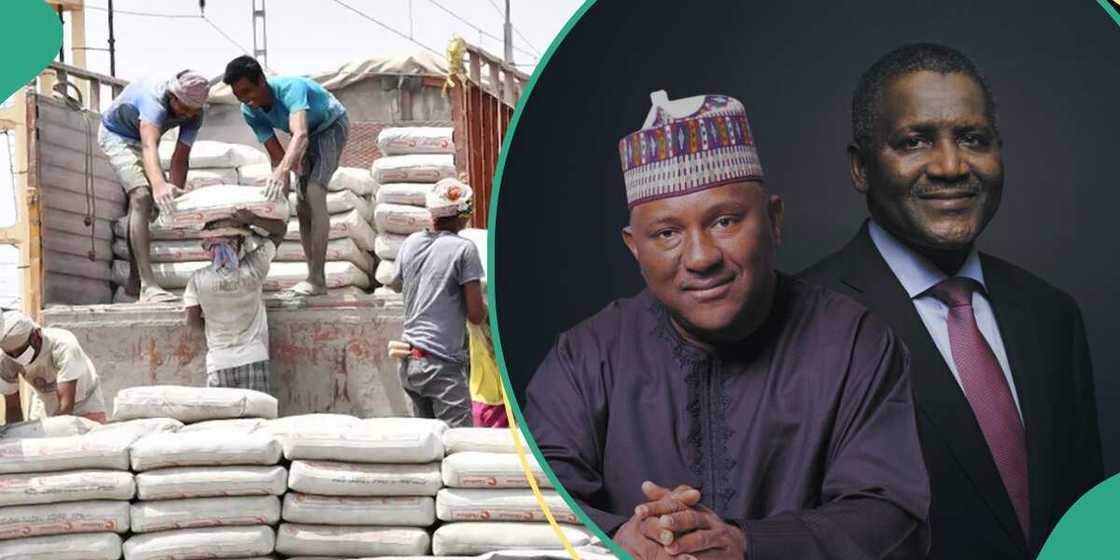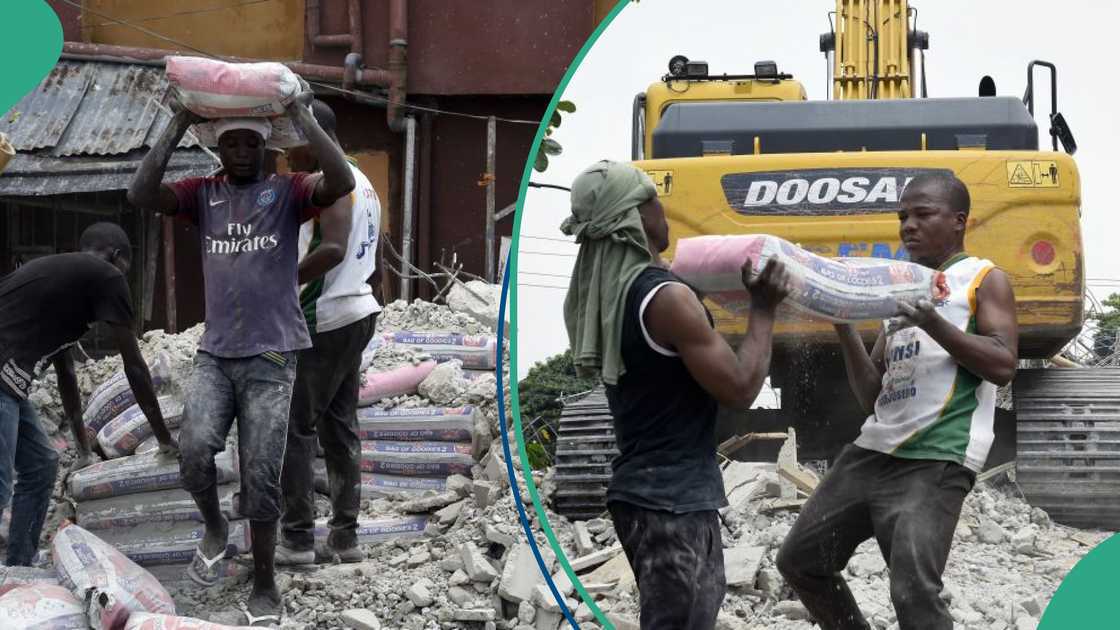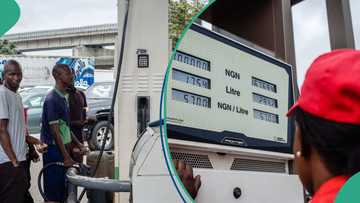Construction Projects to Halt as Cement Prices Increase Again Despite FG Directives to Crash Costs
- Cement prices in Nigeria have gone up again, barely weeks after the federal government issued a directive to crash prices
- Surveys show that the prices have increased across Dangote, Bua and Lafarge cements, in different locations
- Contractors have lamented the sudden change in price, complaining that it could stall work on ongoing projects
Don't miss out! Join Legit.ng's Sports News channel on WhatsApp now!
Legit.ng journalist Ruth Okwumbu-Imafidon has over a decade of experience in business reporting across digital and mainstream media.
Cement prices in Nigeria have increased again, despite promises from the different manufacturers to reduce the prices.
This increase trickles down to affect the costs of building and construction materials, as well as the cost of buying or renting real estate properties.
Just last month, cement prices sold between N10,000 and N15,000 for a 50kg bag, triggering a meeting between federal government officials and representatives of the different manufacturers, after which they promised to reduce the prices.

Source: UGC
In an unexpected twist, the prices have now gone up again, with building contractors worried about how this affects them.
Cement manufacturers give reasons for price hike
The meeting with the federal government representatives and the cement manufacturers revealed the reasons for the price increase across different cement brands.
They identified issues such as bad road infrastructure, rising petrol and energy costs, foreign exchange volatility, among others, as the reasons for the increasing price of cement.
The Minister of Works, Dave Umahi, urged the cement manufacturers to reduce the price to between N7,000 and N8,000 per 50kg bag.
Umahi noted that the exchange rate had stabilized around N1,500/$, and petrol costs were also crashing, promising that the government would fix major roads across the country.
The meeting ended with the manufacturers agreeing to crash the price, provided the issues raised were addressed, and they reduced the price to N9,000 immediately in a show of good faith.
Barely a month after, cement prices have gone up again.
New cement prices in the market
Major dealers say a 50kg bag of Dangote Cement, which sold for N9,000, is now sold between N9,400 and N9,600 in Abuja.
In Lagos state, dealers sell the 50kg bag of Dangote Cement for around N9,500, and this could be negotiated to N9,400 depending on quantity.
Dangote Cement controls over 61% market share of the cement industry in Nigeria, and this increase comes with implications for builders and property developers.
The Authority reports that BUA Cement, which controls over 20% and Lafarge Africa, which controls about 18%, have also increased their prices in a similar move.
Contractors react to the price change
A contractor who spoke to Legit.ng lamented the impact of the price change on ongoing projects. Engineer Fred Osayande noted that contractors would lose serious money for projects that had been secured at the former price.

Read also
Fuel price: Cost of transportation rises, leaves many Nigerian families with little for food

Source: Getty Images
He explained that N400 change in price could translate to N400 million loss for a contractor that needs 1 million bags of cement for a project.
He said;
"Don't be surprised to see uncompleted projects increase now, because sometime when a contractor has no way to complete the project due to price changes, he has no choice but to stall the project."
Cement price reduction can increase sales
As much as the cement companies are smiling to the bank, experts have concluded that price reduction will earn them even more sales.
Speaking with Legit.ng, Dr Ifeanyi Ubah, Head of Research at Commercio Partners, a Lagos-based investment firm, listed what the companies must do to achieve this.
He said:
"To reduce cement prices and enhance affordability, Nigerian cement companies must optimize local raw material sourcing to cut import reliance and forex exposure. Investing in alternative energy sources, such as gas and renewables, can lower production costs.
"Enhancing distribution efficiency and reducing middlemen can also curb price inflation. Government incentives, such as tax reliefs and infrastructure support, can further ease costs."
He added that boosting production capacity through new plants and technological upgrades can increase supply, stabilizing prices in the long run.
Cement makers record rise in production costs
In related news, Nigeria’s top cement companies spent about N3.64 trillion on production costs in 2024.
This was due to rising inflation and the weakening of the naira, which made foreign exchange more expensive, and it marked a 72% increase from the N2.12 trillion recorded in 2023.
The key cement producers—Dangote Cement Plc, Lafarge Africa Plc, and BUA Cement Plc—saw a significant rise in expenses, including production costs, administrative expenses, and distribution costs.
The article has been updated by the head of business desk, Victor Enengedi, with exclusive comments from an expert.
PAY ATTENTION: Сheck out news that is picked exactly for YOU ➡️ find the “Recommended for you” block on the home page and enjoy!
Source: Legit.ng





